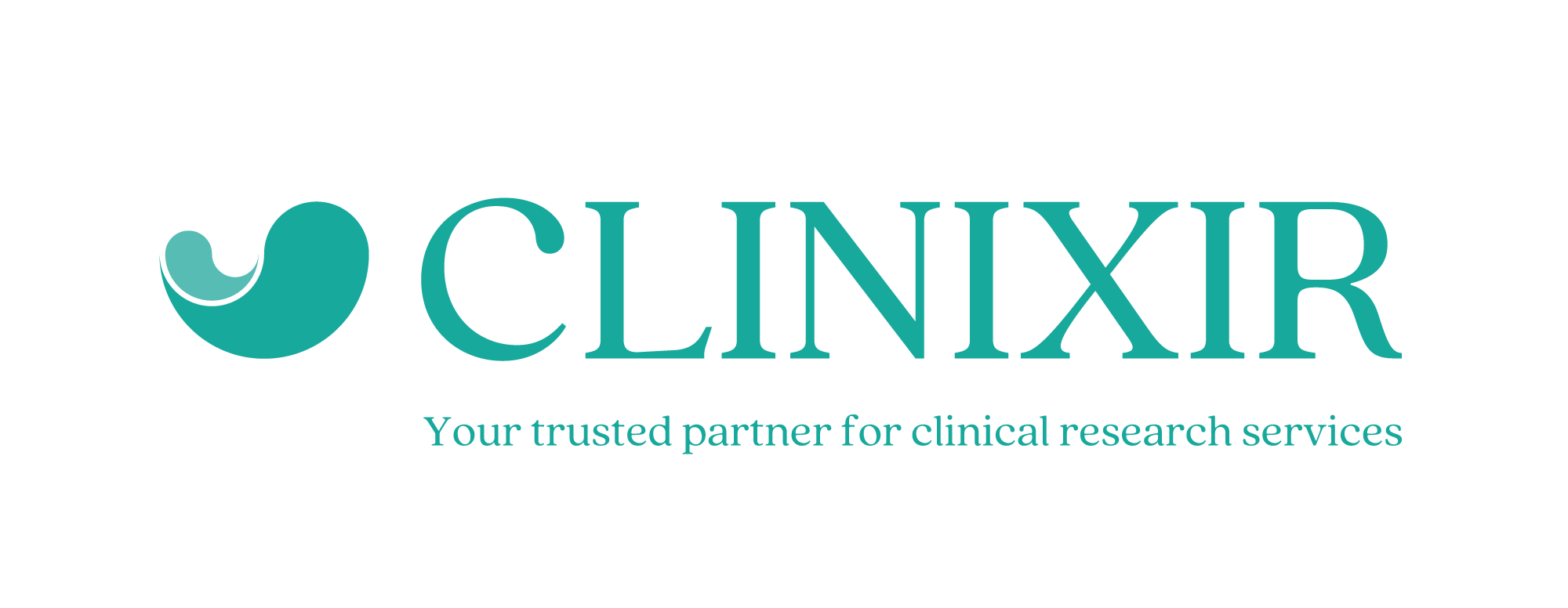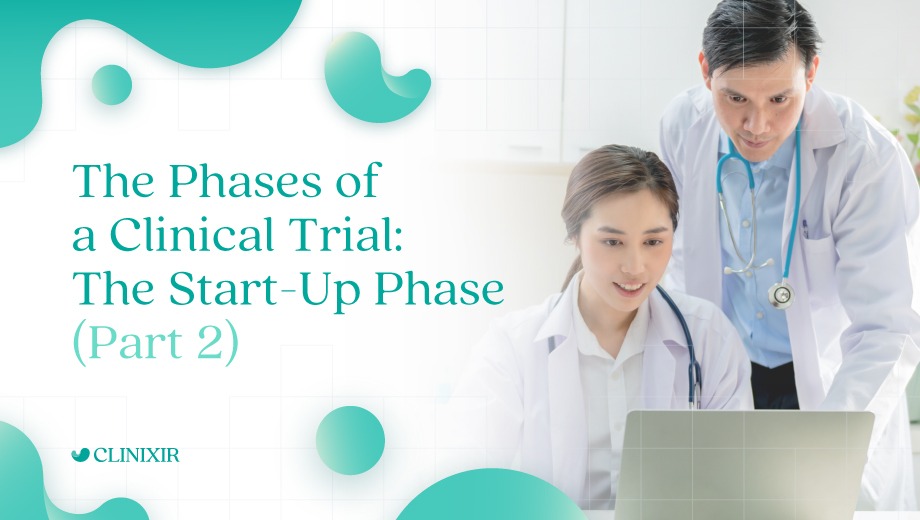Clinical trials vary widely in their effectiveness, and the ones with strong foundations are far more likely to be successful. As we shown in Part 1 of this article series, it is essential to understand the intricacies of each step in the start-up phase.
Previously we covered the first four steps of the start-up phase, now we will address the final four steps required for a robust and comprehensive clinical trial setup.
Step 5: Pre-Study or Screening Visit
The pre-study visit and screening can last anywhere between two to three months. The main objective at this stage is to confirm that the selected sites in fact have the necessary capability and capacity to conduct the intended study.
Prior to this point, all data collected was self-reported, which is why sponsors must now perform in-person, pre-study visits to validate the information sent in by the sites themselves.
Evaluating the condition of a site means taking many crucial factors into account. These include understanding the full capabilities of the physical location and the site staff, reviewing patient recruitment strategies, and meeting the Principal Investigator to confirm their ability, understanding, and interest in the trial protocols.
Pre-study visits are also a great way for sites to build relationships with their sponsors, provided they give a good impression regarding the current study as well as future cases.
Furthermore, a qualified clinical research organization (CRO) such as Clinixir – with an expansive network of eight clinical research centers – can help sponsors confirm whether the selected site is suitable for conducting the intended trial. Specifically, the Clinixir team will partner with the sponsors to conduct the following investigative activities for the selected site:
- Investigator responsibilities
- Qualifications of the investigators or other site personnel
- Study objectives, endpoints, indication challenges, inclusion-exclusion criteria, protocol-required procedures, eligibility criteria, and patient recruitment
- Informed consent requirements
- Adverse event reporting, source documentation, and record retention
- Infrastructure, availability of a storage area to store investigational drug or devices, and availability of required equipment or instruments
- Reporting of the event.
Step 6: Ethics Committee (EC) and Regulatory Authority (RA) Submissions
The submission and approval of regulatory documents are perhaps the most important part of the start-up process, as they ensure that sites are eligible to conduct the study. Each country’s regulatory requirements are different, but for the purpose of this article we will focus on Thailand specifically.
All clinical trials require approval for each trial site, to be given by an EC (in Thailand, this can be a committee under a government agency such as Ministry of Public Health) recognized by the FDA. At this stage, the sponsor/or CRO will be the party applying for EC approval.
ECs are responsible for reviewing and approving clinical research-related drugs to be imported, as well as maintaining and protecting the rights of research participants to ensure their safety throughout their participation in the clinical trial.
Once the sites get approval by an EC, the sponsors must apply for Thai FDA approval in order to obtain the investigational product (IP) and non-IP (medical device, Site Pad, etc) import licenses for clinical research purposes.
This step, while crucial, can be extremely complex and time consuming. At Clinixir, we can help you navigate and streamline this process by helping sponsors prepare submission packages, liaise with regulatory bodies and trial sites, and ultimately obtain the relevant (EC, Central Research Ethics Committee, and Thai FDA) approvals.
Step 7: Clinical Trial Agreement (CTA) Initiation and Negotiation
Negotiation is a vital part of the CTA process, helping to meet the needs of all parties. It is rare that the initial CTA is accepted as-is, and an honest and transparent discussion about what is and is not possible is key to initiating a functioning CTA. Several factors must therefore be considered during these negotiations.
Perhaps the most important issue to resolve involves clearly ranking the interests and needs of each site by priority. This priority holds equally true for other stakeholders such as the labs, researchers, partners, and other actors relevant to the negotiations.
In this way, concessions and adaptations can be made to ensure that every stakeholder has their high-priority needs met – while also identifying which lower-priority needs can be addressed through adaptations or concessions. Success in this stage will ensure that every party is confident and motivated prior to the start of the clinical trials. The better everyone understands the requirements and perspectives of everyone else, the better the CTA will be at addressing all concerns and potential issues before they become an impediment to progress.
Common pitfalls during this stage include internal regulations or policies that limit certain parties’ ability to negotiate and adapt to external constraints. This inflexibility may result from burdensome insurance requirements or internal policy guidelines that prevent compromise with other actors in the chain. A good-faith negotiation with transparent priorities and well-structured policy guidelines can facilitate the consideration of all perspectives, thus increasing the chance of a more robust and balanced CTA – which in turn leads to a greater chance of success for all involved.
Regardless, creating a functioning CTA that meets the needs of all parties is a challenging process. The lack of knowledge and experience in CTA negotiation can lead to a substantial delay in this step and in the overall clinical trial process. At Clinixir, our expert staff can help sponsors streamline this process by negotiating the best terms possible (e.g. site budgeting) with different parties in an efficient manner.
Step 8: Site Initiation Visit
The final step is the Site Initiation Visit (SIV). The purpose of the SIV is to provide training and to ensure understanding of the International Conference on Harmonization of Good Clinical Practice (ICH-GCP) required from the Principal Investigator (PI) and their staff on all aspects of the protocol. The PI, monitors, data managers, relevant directors, and other key staff should ideally be in attendance or directly involved, to ensure that detailed responsibilities and expected outcomes are established and understood. No patient enrollment or specific activities can be initiated until the SIV has been completed.
Notably, advances in technology and the recent pandemic have forced many aspects of this process to be held online. It is therefore not necessarily true that a “visit” to a site must be made face-to-face, or by all relevant stakeholders. In many cases, money, time, and resources can be saved by conducting aspects of the visit virtually.
At Clinixir, we will help manage various elements of the SIV before moving to phase 1 of the clinical trial. Specifically, we will collect and review essential documents required under the ICH-GCP and prepare and manage IP and non-IP application packages until its approval. Moreover, we will ensure that relevant supplies and materials are at the site prior to or on the day of SIV, as well as providing vendor access and proper training to key staff involved.
A foundation for success
If the start-up phase is properly managed and executed, then there’s a higher chance for the overall clinical trial to succeed.
The team at Clinixir is ready to collaborate with you through every step of this delicate process. Specifically, we:
- Thoroughly understand the regulatory requirements in Thailand’s clinical research industry
- Have strong partnerships with eight academic institutions that provide full support in patient recruitment and all phases of a clinical trial
- Provide quality management (i.e. GCP-ICH and ISO 9001) throughout your entire treatment development process
- Contain innovative e-clinical systems such as EDC and eTMF to streamline data collection
- Help you manage budget for you throughout the entire process – saving resources and unnecessary labor
- Liaise with relevant regulatory agencies
- Provide affordable and competitive prices for all our services.
Visit our website to discover more about our services, and contact us today to get started.
The next installation of our Phases of a Clinical Trial series will feature phase 1 clinical trials.



